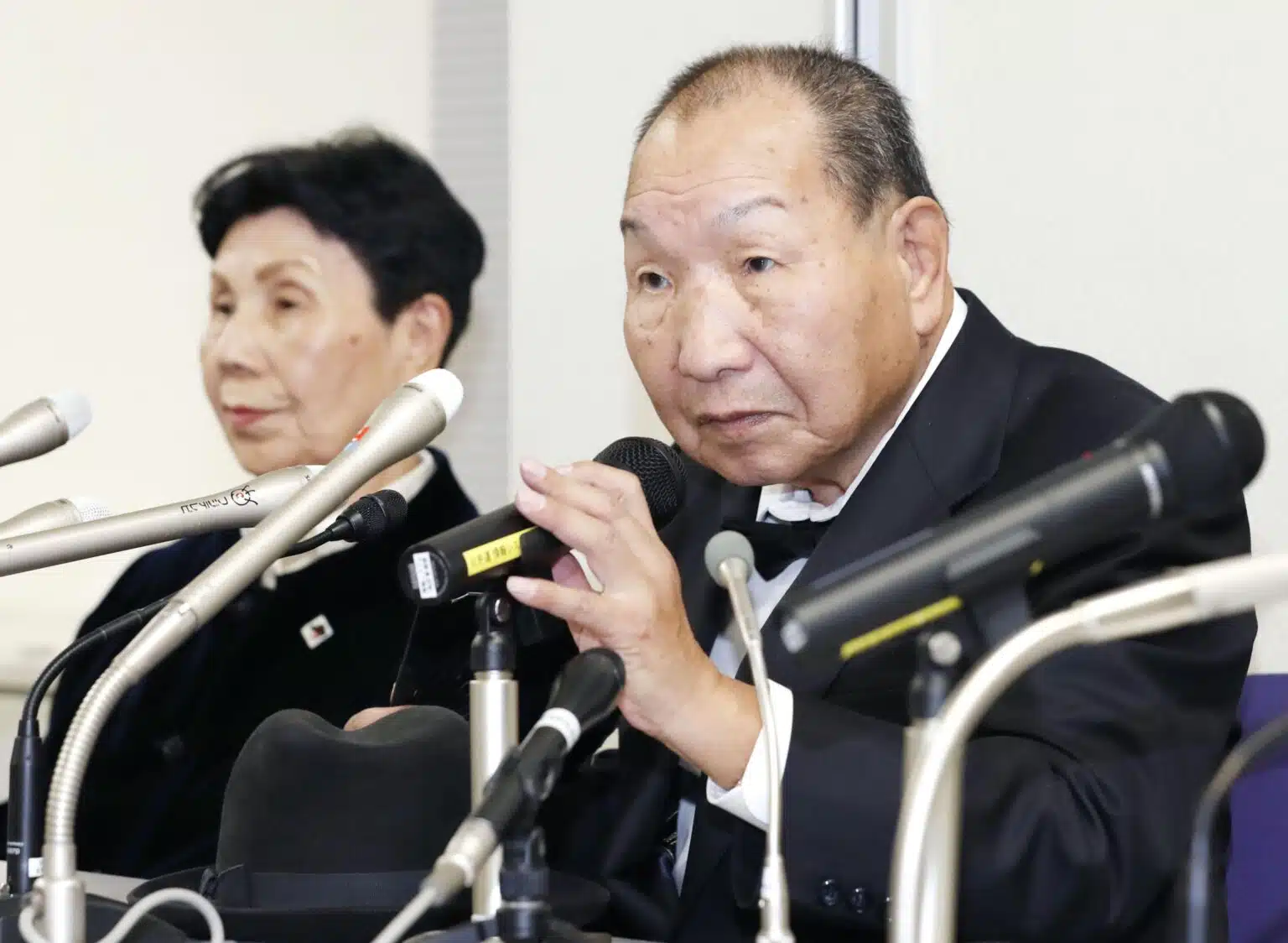Tokyo’s high court has ordered a retrial for an 87-year-old former boxer who has been on death row for more than five decades after his lawyers said his murder conviction was based on a forced confession and fabricated evidence.
Iwao Hakamada, 87, spent nearly five decades waiting for the hangman’s call following his 1968 conviction for quadruple murder before new evidence led to his release seven years ago.
The court favours Hakamada

Table of Contents
The Tokyo High Court ruled Monday that “Hakamada cannot possibly be identified as the culprit,” given the main evidence presented to finalise his death penalty was unreliable, Kiyomi Tsunagoe, a lawyer on his defence team. “Hakamada’s case is known globally, and there always remains the risk that he could be sent back to prison and face the death penalty again, despite evidence pointing to his innocence,” Tsunagoe said.
Japan’s criminal justice system has a 99.9% conviction rate and is heavily reliant on confessions. The country is the only major developed democracy outside the United States that imposes capital punishment. In 1966, Hakamada was accused of robbery, arson and the murder of his boss, his boss’ wife and their two children. The family was found stabbed to death in their incinerated home in Shizuoka, central Japan.
Boxer to alleged criminal
The former professional boxer-turned-factory worker initially admitted to all charges before changing his plea at trial. He was sentenced to death in a 2-1 decision by judges, despite repeatedly alleging that police had fabricated evidence and forced him to confess by beating and threatening him. The one dissenting judge stepped down from the bar six months later, demoralised by his inability to stop the sentencing.
A pair of blood-spattered, black trousers and his confession were the evidence against Hakamada. The alleged motive ranged from a murder by request to theft. In 2004, a DNA test revealed that blood on the clothing matched neither Hakamada nor the victims’ blood type.
In 2014, the Shizuoka District Court ordered a retrial and freed Hakamada as he awaited his day in court, on the grounds of his age and fragile mental state. But four years later, the Tokyo High Court scrapped the request for a retrial, for reasons it would previously not confirm.
The decision to grant Hakamada a retrial on Monday came after the Supreme Court in 2020 ordered the Tokyo High Court to reconsider its earlier decision not to reopen the case. According to Tsunagoe, the court ruled there was a strong possibility that investigators had planted five pieces of clothing allegedly worn by Hakamada during the 1966 murders in a miso paste tank where they were found.
Tsunagoe said the defence team has argued that the evidence used to finalise Hakamada’s death sentence was fabricated. On Monday, the presiding judge supported the defence’s claims that the reddish colour of the bloodstains on the clothing allegedly worn by Hakamada would have turned black when immersed in the miso tank over several months
Amnesty International has said Iwao Hakamada is the world’s longest-serving death row prisoner. The Tokyo High Court said Hakamada deserved a retrial because of a possibility that key evidence that led to his conviction could have been fabricated by investigators, a statement from the Japan Bar Association said.
Hakamada had been temporarily released since 2014 but still not cleared of charges when the Shizuoka District Court in central Japan suspended his execution and ordered a retrial. That ruling was overturned by the Tokyo High Court until the Supreme Court in 2020 ordered the lower court to reconsider.
Hakamada was convicted of murder in the 1966 killing of a company manager and three of his family members, as well as setting fire to their central Japan home, where he was a live-in employee.
He was sentenced to death two years later. He initially denied the accusations then confessed, which he later said he was forced to do because of violent interrogation by police. Hakamada was not executed because of lengthy appeals and the retrial process.
It took 27 years for the Supreme Court to deny his first appeal for a retrial. He filed a second appeal in 2008, and the court finally ruled in his favour on Thursday.
At contention were five pieces of blood-stained clothing that investigators said Hakamada allegedly wore during the crime and hid in a tank of fermented soybean paste, or miso, found more than a year after his arrest.
The Tokyo High Court decision on Monday acknowledged scientific experiments that clothing soaked in miso for more than a year turns too dark for blood stains to be spotted, saying there is a possibility of fabrication, most likely by investigators.
Defence lawyers and earlier retrial decisions said the blood samples did not match Hakamada’s DNA, and trousers that prosecutors submitted as evidence were too small for Hakamada and did not fit when he tried them on. Hakamada has been serving his sentence at home since his release in 2014 because his frail health and age made him a low risk for escape.
Japanese Capital Punishment

Japan and the United States are the only two countries in the Group of Seven advanced nations that retain capital punishment. A survey by the Japanese government showed an overwhelming majority of the public support executions.
Executions are carried out in secrecy in Japan and prisoners are not informed of their fate until the morning they are hanged. Since 2007, Japan has begun disclosing the names of those executed and some details of their crimes, but disclosures are still limited.
Supporters say Hakamada’s mental health has suffered because of his nearly half-century detention, mostly in solitary confinement, in fear of execution. He spent a total of 48 years in prison, more than 45 of them on death row.












